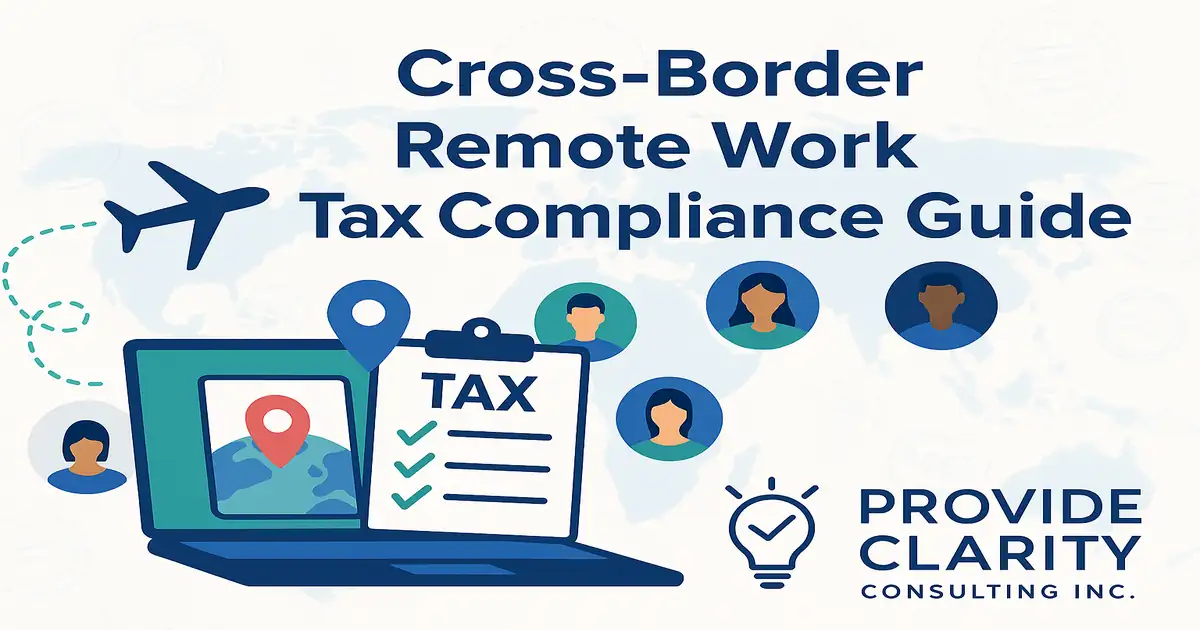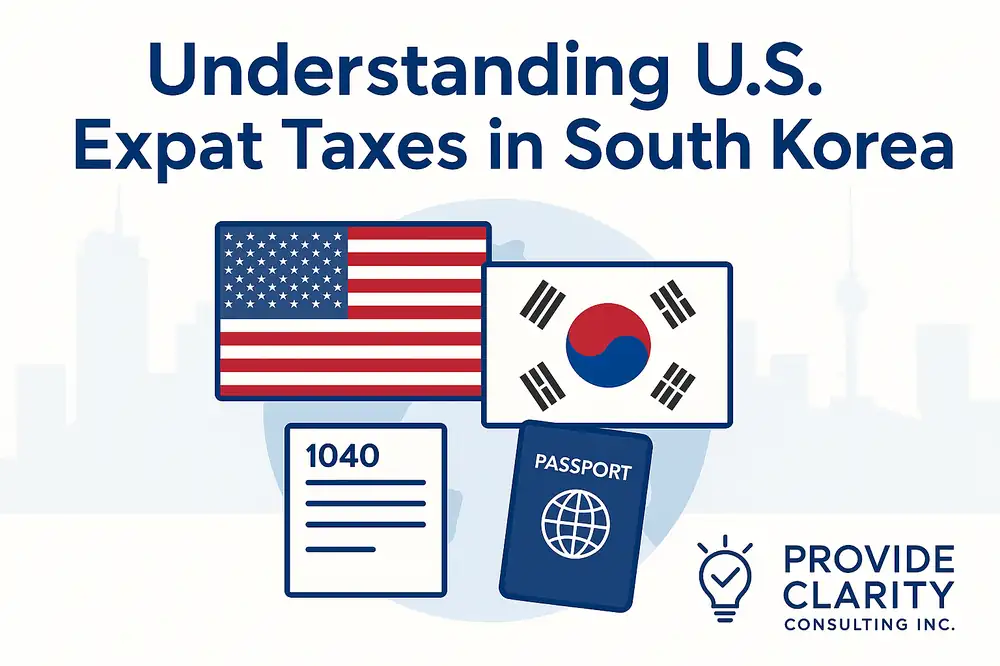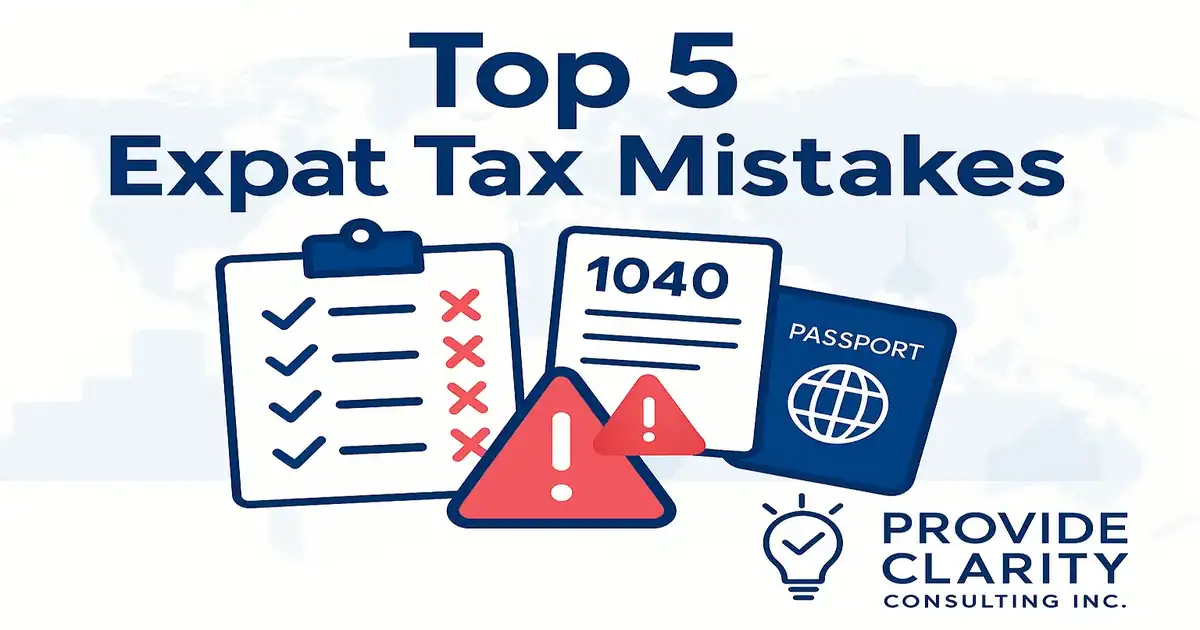Disclaimer: This article is for informational purposes only and does not constitute legal or tax advice. Tax laws and interpretations change frequently; always consult a professional regarding your specific circumstances.
Tax Implications of Remote Work Across Borders: What Individuals and Small Businesses Need to Know
Estimated reading time: 15 minutes
- Understand the complexities of tax residency and double taxation for remote workers.
- Recognize the importance of tax treaties and social security agreements in mitigating risks.
- Employers must address permanent establishment risks and ensure payroll compliance.
- Stay updated on new trends like digital nomad visas and technology in tax compliance.
- Consult tax experts to strategize cross-border remote work effectively.
- Introduction: Navigating the Tax Implications of Remote Work Across Borders
- Understanding the Core: Tax Residency and Double Taxation
- For Employers: Permanent Establishment and Payroll Compliance
- A Closer Look: Country-Specific Tax Issues
- Social Security: Complications and Agreements
- COVID-19 and the Rise of Digital Nomad Visas: Future Trends in Cross-Border Remote Work
- Practical Takeaways: How Individuals and Small Businesses Should Respond
- How Our Tax Consulting Services Can Help
- Let’s Take the Next Step Together
- References & Further Reading
Introduction: Navigating the Tax Implications of Remote Work Across Borders
With remote work becoming a permanent fixture in today’s professional landscape, an increasing number of individuals and small business owners are realizing the complexities involved in working across borders. The topic of “Tax Implications of Remote Work Across Borders” has emerged as one of the most pressing issues in individual and small business tax consulting. Whether you’re an employee, a freelancer, or a small business owner managing a distributed team, understanding these evolving tax implications is essential for seamless compliance, avoiding double taxation, and optimizing your tax position.
In this comprehensive guide, we’ll break down the complexities of international remote work taxation, illustrate recent developments like the rise of digital nomad visas, explore the critical role of tax treaties and social security agreements, and provide clear, actionable advice to help you navigate your cross-border tax responsibilities. We’ll also show how our expert tax consulting services can support you every step of the way.
Understanding the Core: Tax Residency and Double Taxation
Remote work across borders introduces fundamental questions around tax residency and the risk of double taxation. These concerns apply both to individuals choosing to work from another country and to small businesses managing globally dispersed teams.
What is Tax Residency?
Tax residency is the status that determines where you are legally obligated to pay taxes. Most countries classify individuals as tax residents based on factors such as:
- Number of days spent in a country (often using the “183-day rule”)
- Availability of a permanent home
- Center of vital interests (where your personal and economic ties are strongest)
If you reside or work in a country for a significant part of the year—usually more than 183 days—you may be classified as a tax resident there, regardless of where your employer is located. For businesses, understanding the tax residency status of employees is crucial for determining payroll and corporate tax obligations.
Learn more about tax residency from the IRS
The Double Taxation Dilemma
One of the biggest risks with cross-border remote work is double taxation—being taxed on the same income by two different countries. Fortunately, you have options to prevent this scenario. These generally offer two remedies:
- Foreign Tax Credits: You can subtract the tax paid in one country from the tax owed in another.
- Tax Exemptions: Certain portions of your income are exempt from taxes in one location if taxed elsewhere.
However, the specific rules vary by country and treaty, underscoring the need for proactive tax planning and expert guidance.
For Employers: Permanent Establishment and Payroll Compliance
Small businesses with employees working remotely from another country face a critical concern: permanent establishment (PE) risk. If the business is deemed to have a taxable presence in another jurisdiction due to its employees’ activities, it could face unexpected corporate tax liabilities.
What Triggers Permanent Establishment?
Permanent establishment is determined by whether a company’s activities in a foreign country are substantial enough to constitute a “fixed place of business.” For remote workers, risks increase if:
- The remote worker regularly negotiates or closes contracts for the company
- The employee’s home is the de facto office for the business in that jurisdiction
To mitigate potential exposure, businesses should:
- Consult local tax professionals on cross-border employee placements
- Limit employees’ authority to negotiate or sign contracts from abroad
Payroll, Withholding, and Compliance
Payroll compliance becomes increasingly complicated when employees are based in multiple jurisdictions. Employers must ensure correct:
- Withholding tax at source for each employee’s location
- Payroll reporting in both the host and home countries
- Social security contributions, as required under local regulation
Investing in modern payroll systems, maintaining precise records of employee locations, and engaging an international tax advisor are all fundamental steps to addressing these challenges.
We assist small businesses by optimizing payroll, ensuring regulatory compliance, and eliminating surprises at tax time.
A Closer Look: Country-Specific Tax Issues
United States
The U.S. has a unique citizenship-based taxation regime, where U.S. citizens and residents must report worldwide income, regardless of physical location. Still, remote workers abroad can leverage key provisions:
- Foreign Earned Income Exclusion (FEIE): For 2024, individuals can exclude up to $126,500 of foreign earned income (subject to inflation adjustments).
- Foreign Tax Credit: Allows taxpayers to offset U.S. tax liability on income already taxed abroad.
Failure to report and comply can result in significant penalties. For guidance, see the IRS website.
European Union
EU member states apply individual residency rules, but the 183-day rule is generally observed for taxation purposes. The European Union’s directives also streamline cross-border social security through portable forms like the A1 certificate, simplifying compliance for short-term remote assignments.
United Kingdom
UK citizens face potential dual tax obligations when working remotely outside the country. The UK’s statutory residence test determines whether they owe tax on worldwide income. Essential factors include time spent in the UK, employment ties, and family connections.
See HM Revenue & Customs’ Statutory Residence Test Guidance.
Other Jurisdictions
Tax rules differ widely elsewhere. For example:
- China and India: Tax residency thresholds are day-count based. Extended stays can trigger tax filing obligations even if an individual’s home country is elsewhere.
- Estonia: Offers a Digital Nomad Visa with more straightforward rules for foreign remote workers, but specific income and activity limitations apply.
- Canada: Considers both residency and ties to the country in determining tax responsibilities.
Because rules can shift rapidly, individuals should consult local tax authorities or experienced advisors.
Social Security: Complications and Agreements
Tax is only part of the story—social security contributions often present a bigger challenge in cross-border work.
Bilateral Social Security Agreements
Many countries have entered totalization agreements (like the U.S.-UK or U.S.-Germany agreements), allowing expatriate and remote workers to avoid duplicate social security payments in both countries and maintain benefit eligibility.
Find out more on the list of U.S. international Social Security agreements.
Non-Agreement Countries
Absent a totalization agreement, both individual and employer may be required to contribute to social security systems in both jurisdictions, increasing costs and complexity. This often requires strategic workforce planning and sometimes negotiation with authorities.
Practical advice:
- Always check for a relevant bilateral agreement before posting or hiring abroad.
- Where none exists, budget for potential double contributions or consider alternative contracting structures.
COVID-19 and the Rise of Digital Nomad Visas: Future Trends in Cross-Border Remote Work
Pandemic-Era Flexibility
The COVID-19 pandemic saw a dramatic rise in remote work, with governments worldwide implementing temporary tax leniencies (like flexible residency rules). However, as these measures are phased out, prior rules often snap back into place, catching some by surprise.
Digital Nomad Visas and Tax Incentives
A growing number of countries including Estonia, Portugal, and Barbados, offer digital nomad visas. These are tailored to attract remote workers with benefits such as lower tax rates, income thresholds, and clearer regulatory frameworks. However, to qualify, applicants must meet specific criteria and often cannot provide local services or work for local clients.
Technology’s Role in Compliance
With increased workforce mobility, companies are adopting advanced location-tracking, time-logging, and payroll automation tools to comply with multiple tax and social security regimes. This reduces human error, streamlines reporting, and ensures compliance across jurisdictions.
Key takeaway: Stay ahead of trends by leveraging technology and engaging professionals who can integrate tax planning with digital solutions.
Practical Takeaways: How Individuals and Small Businesses Should Respond
Navigating the tax implications of cross-border remote work requires proactive, strategic planning. Here’s how you can protect yourself or your business:
For Individuals
- Track Your Days: Keep detailed records of where you live and work each day to substantiate your tax residency status.
- Understand Double Taxation Relief: Know which credits or exemptions you can claim and document foreign tax payments.
- Consult with International Tax Experts: Location changes, even temporarily, can impact your tax and social security situation.
- Stay Informed: Rules can change rapidly. Subscribe to updates from credible tax authorities or your local consulate.
For Small Businesses
- Assess Permanent Establishment Risks: Consult with experts before approving remote or hybrid work arrangements in foreign jurisdictions.
- Optimize Payroll Compliance: Use robust payroll systems or engage tax consultants to ensure withholdings and filings are correct.
- Leverage Totalization Agreements: Before deploying staff overseas, coordinate with HR and tax advisors to avoid social security double payment.
- Support Digital Nomads Properly: If you allow employees to work remotely abroad, ensure visa eligibility and compliance with both local and home country rules.
Our team specializes in helping individuals and businesses plan, execute, and optimize international work arrangements to ensure compliance, minimize tax burdens, and avoid costly penalties.
How Our Tax Consulting Services Can Help
As this guide illustrates, the tax implications of remote work across borders encompass complex multi-jurisdictional rules, from tax residency and double taxation to permanent establishment and payroll compliance. Mistakes can be costly, incurring unexpected taxes, penalties, or even business disruptions.
Our experienced tax professionals cut through the complexity with:
- Personalized cross-border tax advice
- Permanent establishment risk assessment and mitigation
- Ongoing support for expatriates, digital nomads, and distributed teams
Whether you’re an individual planning to work remotely overseas or a business looking to support your global workforce, our expert team ensures you stay compliant, optimize your tax position, and seize the benefits of the new world of work.
Let’s Take the Next Step Together
The future of work is global, flexible, and borderless, but the tax and compliance landscape is more complicated than ever. Don’t leave your international tax status to chance. Reach out to our specialists today for a personalized assessment or to learn more about our cross-border tax consulting services. Together, we’ll build a strategy that lets you or your business thrive anywhere the world takes you.
Explore our services here or contact us now to schedule a consultation!
References & Further Reading
- IRS: Foreign Earned Income Exclusion
- SSA: U.S. International Social Security Agreements
- HM Revenue & Customs: Statutory Residence Test (SRT)
- Estonia’s Digital Nomad Visa




